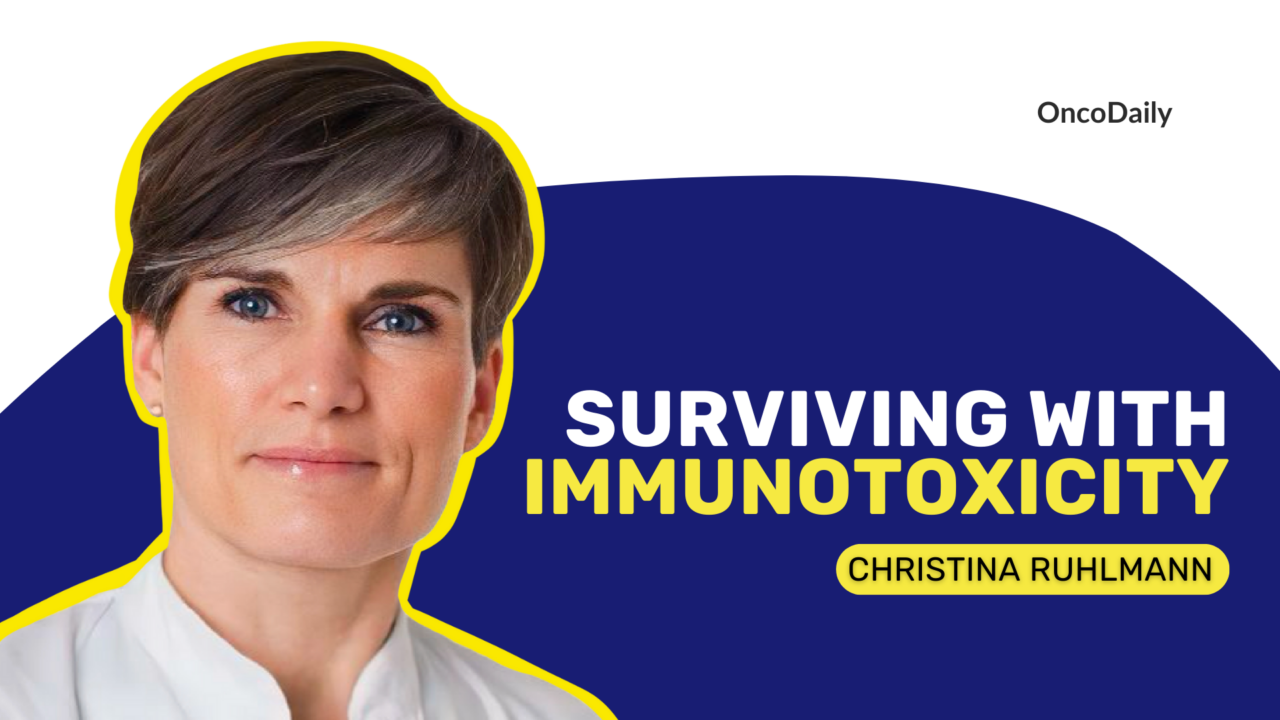In this episode of OncoDaily, Dr. Christina Ruhlmann, a clinical oncologist from Denmark, shares insights on the growing issue of immunotoxicity in melanoma patients. Hosted by Dr. Martin Harutyunyan, the discussion highlights the need for more research into chronic toxicities, particularly neurological and rheumatological complications, faced by immunotherapy survivors.
Christina H. Ruhlmann is a consultant in the Department of Oncology at Odense University Hospital, Southern Denmark, where she specializes in treating patients with melanoma and thyroid cancer. She is also an associate professor of clinical oncology at the University of Southern Denmark, where she teaches medical students and supervises master’s theses and PhD candidates. Recently, she established the Regional Centre for Immunotoxicity of Southern Denmark, which focuses on advancing research in immunotoxicity.
Dr. Martin Harutyunyan is a medical oncologist and palliative care specialist who currently serves as the Head of the Palliative Medicine Service at Yeolyan Hematology and Oncology Center in Yerevan, Armenia. He has been working as a medical oncologist at the same center since October 2021.
Dr. Harutyunyan has made significant contributions to research and patient care throughout his career. He has worked as a clinical researcher at the “City of Smile” Charitable Foundation and as a medical coordinator at the Union of Armenian Doctors.
Dr. Harutyunyan’s played a key role in the launch of a Palliative Medicine Service at Yeolyan Hematology and Oncology Center.
Hi, my name is Christina Ruhmann. I’m a clinical oncologist based in Denmark, Odense. I’m dealing primarily with patients with melanoma, so I’m treating with immunotherapies and I have a great interest in research in immunotoxicity.
So yesterday I did in the plenary session a talk about surviving with immunotoxicity.
That means that patients, now we are having a real large cohort of patients who have been using immunotherapies for nearly 15 years in melanoma, so we have a large cohort of survivors now.
And what we know is very much about the acute toxicities that we’re dealing with, but we do not know so much about the chronic toxicities and what is really the care needs in survivorship phase. So there’s a lack of definitions in this field. We do have now some definitions for chronic toxicities, but there’s a huge gap in the knowledge about surviving with the toxicities and how to measure the care needs in survivorship.
So we have smaller studies demonstrating which kind of toxicities are more prevalent during survivorship and especially the neurological complications, rheumatological complications are prevalent and those could be some of the places where we could optimize the care in survivorship. But more knowledge is needed and especially now that immunotherapy have moved very much forward in the adjuvant therapy phase and also in the new adjuvant phase. So really we need to take good care of the patients and not do more harm than we do good for them.
So great researchers get together and promote and improve the quality of life for our patients. That’s really the care goal here in immunotoxicity also. So in summary, immunotoxicity is a growing concern for patients now surviving after immunotherapy.
Those can be chronic, those can be devastating for some patients and really we need the conditions to improve the methodology in research in immunotherapy, in immunotoxicities and this is what we would like to bring forward with this session. Thank you.


